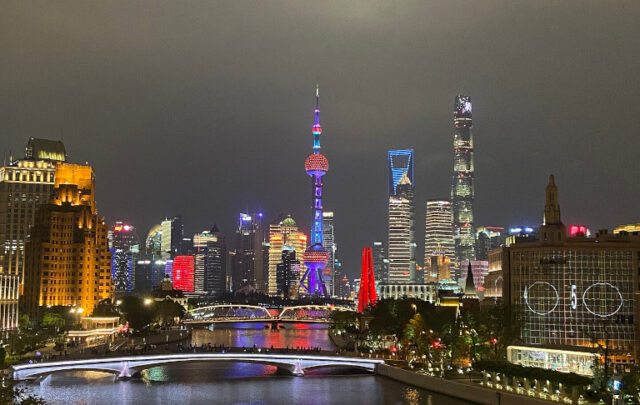Record oil prices are likely to reduce the chances that companies such as Exxon Mobil Corp. or BP Plc will be asked to develop new crude output capacity in Saudi Arabia as the kingdom doesn’t need their capital, Aramco oil company officials and analysts said.
The approximately $16 billion the kingdom will need to invest to add more than 3 million barrels a day of capacity, or 30 percent, can be financed by state-owned Saudi Aramco, said Amin Nasser, the company’s chief petroleum engineer.
“It costs us between $2,500 and $5,000 a barrel to develop an existing oil field, and these costs are unlikely to change for the next 10 years,” Nasser said in an interview in Abu Dhabi. “Whatever capital is required, if the oil market calls for it, we will put it,” he said.
Saudi Arabia and the other members of the Organization of Petroleum Exporting Countries are set to enjoy record budget surpluses this year as they pump at near full capacity to help meet soaring global demand that pushed prices to a record $55 a barrel in New York on Friday.
International oil companies weren’t immediately available for comment.
“Saudi could have the capital to boost its oil output capacity as long as oil prices remain around $40 a barrel and the government’s public finances are managed,” said Jassem al- Saadoun, the managing director of the Kuwait-based Al Shall economic research institute.
Exxon is one of the largest foreign investors in Saudi Arabia, operating a refinery and petrochemical plants.
$100 Billion Revenue
Saudi Arabia, the world’s largest oil producer, will generate annual oil sales of more than $100 billion for the first time this year because of higher international prices and output, Samba bank has projected.
The kingdom’s oil revenue will be similar to the 2003 sales of Volkswagen AG, Europe’s largest carmaker, which ranked 12th among the world’s publicly held companies in terms of annual revenue.
The International Energy Agency, the oil adviser to 26 industrialized countries, and international oil companies such as Total SA have asked Saudi Arabia and other Middle East oil producers to open lands for drilling for the first time in more than two decades to meet an expected surge in energy demand.
“The problem with this idea is that there are no real needs for Aramco to go to the international oil companies for assistance,” said Khan Zahid, chief economist at Riyad Bank. “Technically they can do it, and now they have more than enough money.”
Investment Needed
Aramco last month raised its total output capacity by 500,000 barrels a day to 10.5 million barrels a day with the development of the Qatif and Abu Safah oil fields at a cost of close to $3 billion.
Producers in the Middle East, the site of about 65 percent of the world’s proven oil reserves, have to spend about $18 billion a year by 2030 to raise output capacity and meet global oil demand, the International Energy Agency has said.
Political issues and financial constraints could impede investments in the Middle East, particularly foreign capital, the Paris-based agency said. Royal Dutch/Shell Group and Total pulled some staff members out of Saudi Arabia earlier this year after suspected al-Qaeda militants stepped up attacks of foreign workers in the country.
“There’s no other company in the world that can bring large oil capacity on stream faster or better than Saudi Aramco,” Abdullah Jumaa, the company’s chief executive, said in a statement on the company’s Web site last week after a meeting of the board of directors.
$2 a Barrel
Aramco’s current production costs are low because there is no need yet for enhanced oil-recovery programs, which usually require more investment. Production costs in Persian Gulf countries such as Oman are rising to about $5 a barrel because of ageing fields.
The cost of pumping an oil barrel in Saudi Arabia is between $1 and $2, compared with a world average of $7.50 a barrel, according to the Aramco Web site. Ali al-Naimi, the kingdom’s oil minister, last week identified six oil fields that Aramco could develop within 24 months to add 3.2 million barrels a day of capacity to meet demand.





